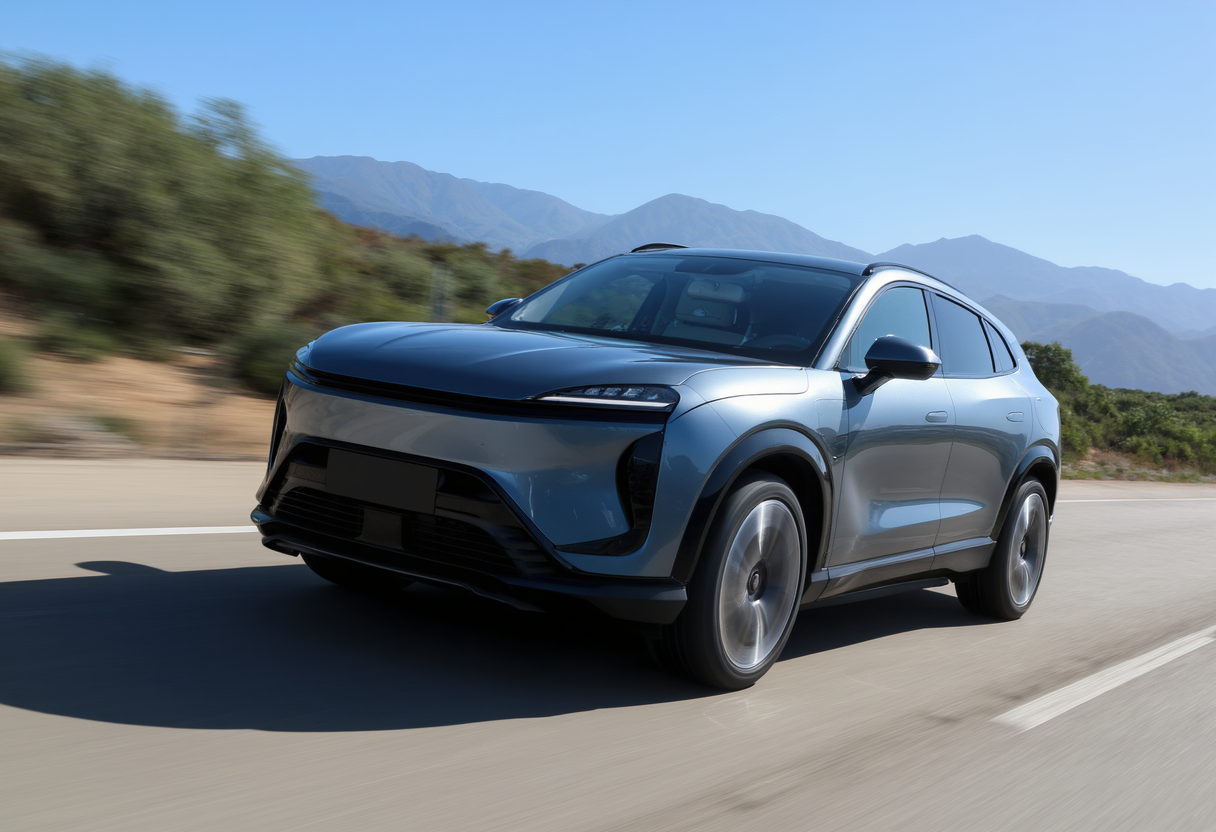The Allure of SUV Cars: A Deep Dive into Modern Utility and Style
SUV cars have taken the automotive world by storm, combining utility, style, and technology. This article explores their rise in popularity, versatility for different lifestyles, and how they cater to both performance and comfort. Discover the features that make SUV cars a favorite among consumers, delving into design trends, safety innovations, and environmental impacts!
Understanding the Rise of SUV Cars
In recent years, SUV cars have transformed from niche vehicles into mainstream favorites among drivers. The appeal of these vehicles lies in their combination of features that address various consumer needs. Primarily, SUV cars offer ample space, which is a significant advantage for families and adventurers alike. With increased cargo capacity and comfortable passenger seating, SUV cars cater to weekend getaways and daily commutes. Additionally, the rugged design of many SUV cars can handle different terrains, which is appealing for those who enjoy off-road adventures. On a deeper level, SUV cars symbolize a lifestyle choice, reflecting the desires and aspirations of their owners. This adaptability has solidified their place in the automotive market. However, what truly sets them apart is their blend of functionality and style, creating an irresistible allure that keeps consumers coming back for more.
Innovations in SUV Car Technology
As technology evolves, so too do the features of SUV cars. Modern models are equipped with cutting-edge technology designed to enhance user experience and safety. These advancements include driver-assist systems, advanced infotainment setups, and connectivity features that appeal to tech-savvy drivers. Moreover, SUV cars increasingly offer hybrid and electric versions, addressing environmental concerns while maintaining performance. Many manufacturers are investing heavily in research and development to reduce emissions and improve fuel economy. This shift is particularly important as consumers become more environmentally conscious. For instance, some SUV cars now come with regenerative braking systems, allowing for better energy efficiency. Overall, innovations in SUV car technology enhance not only the driving experience but also promote a sustainable future in the automotive industry.
Luxury Meets Practicality in SUV Cars
Luxury SUV cars have carved out a niche within the market, merging high-end features with practicality. Brands like BMW, Mercedes-Benz, and Audi have made headlines with their luxury SUV offerings, which come packed with premium materials and state-of-the-art technology. Consumers appreciate the ability to enjoy upscale features such as leather interiors, panoramic sunroofs, and high-fidelity sound systems while riding in powerful vehicles. However, luxury SUV cars do not sacrifice utility for style; they typically offer significant storage space and versatile seating arrangements. The convenience of technology – from smartphone integration to intuitive climate control – further elevates the driving experience. This combination has resulted in a loyal consumer base that seeks out SUV cars for both their practicality and their status symbol appeal. The growing luxury SUV market highlights the shift in consumer preferences towards vehicles that blend form and function seamlessly.
Social Impacts of SUV Car Popularity
The surge in popularity of SUV cars has sparked various social discussions and movements. For one, these vehicles have altered perceptions of what car ownership should entail. As more people opt for larger vehicles, societal norms around family and travel are changing. This shift reflects a growing trend towards prioritizing comfort and space, something that smaller cars often cannot provide. Conversely, the proliferation of SUV cars has raised environmental concerns, as they generally consume more fuel than compact vehicles. Activist groups have advocated for better emissions regulations and the development of eco-friendly models. Additionally, urban areas are starting to reconsider infrastructure as the increasing height and size of SUV cars can impact road designs and parking availability. These discussions show the multifaceted impact that consumer preferences for SUV cars can have on society, prompting calls for sustainable practices in the automotive industry.
Driving Experience: The User Perspective
For many drivers, the experience of operating SUV cars is markedly different from that of smaller vehicles. Owners often cite a feeling of safety and command due to the higher seating position that SUVs provide. This heightened view of the road can contribute to a more confident driving experience. Moreover, many SUV cars are equipped with advanced stability control systems, which enhance handling and provide peace of mind, especially in adverse conditions. Consumers also value the versatility in driving styles that SUV cars offer. Whether it’s navigating city streets or cruising along highways, these vehicles perform admirably. Additionally, with the option for all-wheel drive in many models, drivers can enjoy increased traction during inclement weather. As a result, the overall user experience with SUV cars is one that merges comfort, safety, and versatility—all key factors that influence purchasing decisions.
Conclusion: The Future of SUV Cars
Looking ahead, the future of SUV cars seems promising, driven by consumer demand for versatile and adaptable vehicles. With an ongoing focus on sustainability, manufacturers are likely to continue expanding their offerings in the hybrid and electric SUV segments. The pressure to innovate will challenge automakers to balance performance with eco-friendly solutions, ensuring that SUV cars remain viable for years to come. Furthermore, as urban spaces evolve, the experience of owning and driving an SUV car may shift again, adapting to the needs of modern consumers. As we survey the landscape of the automotive market, it's clear that SUV cars will play a pivotal role in shaping the future of transportation.
seo_configs
title
keywords
description
